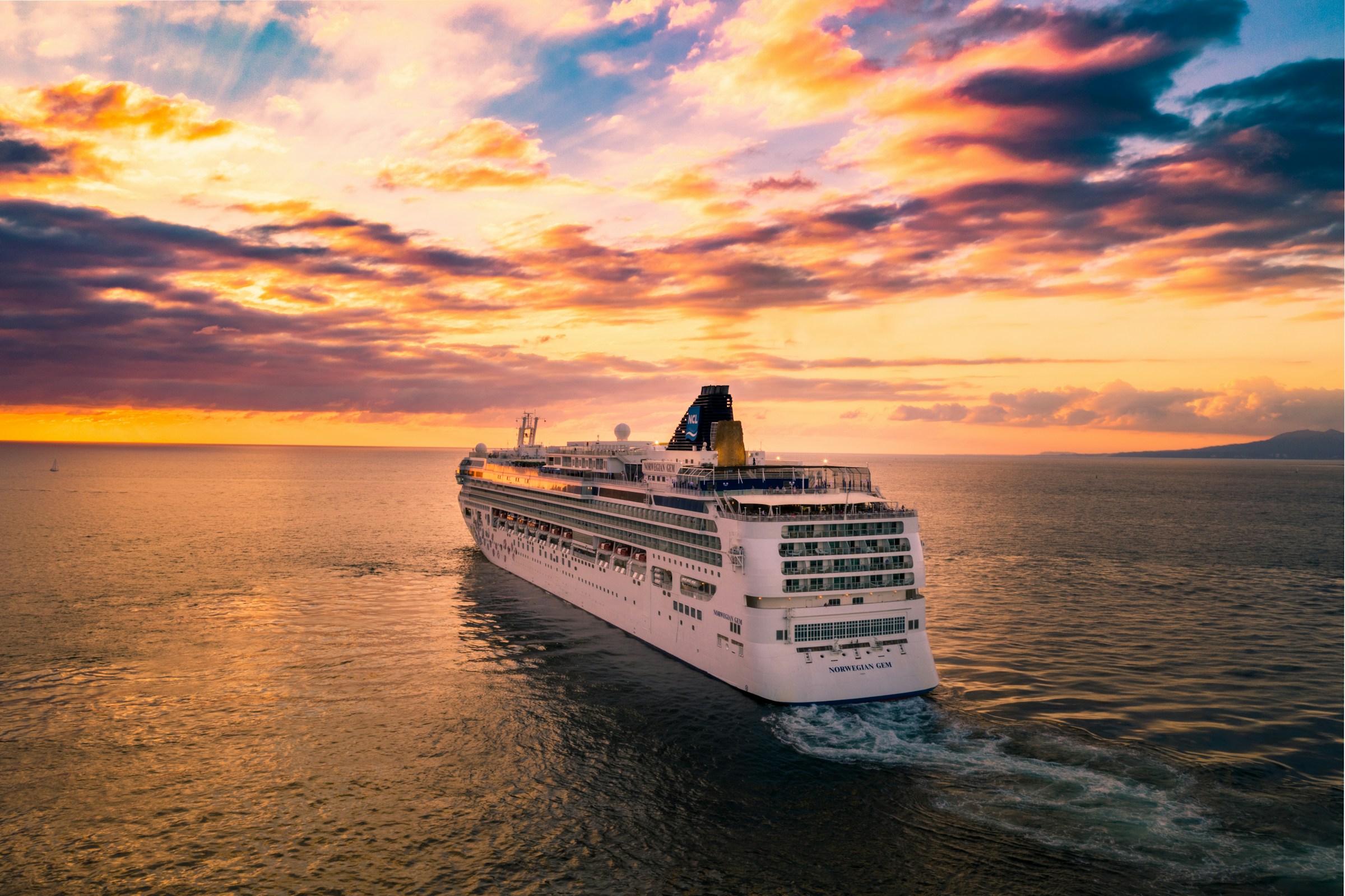Everything you need to be aware of before you set sail as a cruise ship performer, including contract details, how you’ll be taxed and life on board.
Cruise performer jobs are a great way to see the world, meet new people and do what you love – all while getting paid. However, it’s a unique working environment that can be very different from what us landlubbers are used to, so it’s important to understand what performing on a cruise ship entails before applying for a role.
Here is our guide to preparing for cruise performer jobs, what to expect when you start and ways to ensure your experience is smooth sailing.
How Long is a Cruise Ship Contract?
There’s no single answer to this question. Some performers, like guest singers, fly in, perform for a couple of nights, and then jet off again. Others have short-term contracts of up to six months, while long-haul cruises typically hire cruise actors and singers for nine months and over.
Often, a contract for, say, nine months onboard a ship will also include three months of rehearsals before heading out to sea. This means your entire contract would be for 12 months.
Bear in mind that you’re not usually entitled to annual leave during your contract, but you might get to visit some pretty cool places. Naturally, if you need time off following an unpredicted event, most cruise liners are understanding. And the boats dock quite often, so you should be able to get home at short notice if necessary.
If there are any significant events planned during the course of the contract (i.e. a family wedding), be sure to mention them to your agent before applying. There’s no point going through an audition process for a role you’re not going to accept.
How Does a Cruise Ship Contract Differ from a Typical One?
As a cruise ship dancer or performer, you won’t need to worry about day-to-day expenses such as food, drink and accommodation. These, along with any necessary airfares, are typically included as part of the deal – so it can be a good way to save. Other travel expenses – such as taxis, trains and buses – vary according to the cruise liner you’re working on, so you’ll need to check the specifics of your contract.
However, as a self-employed performer, these are legitimate business expenses, so keep receipts for accounting purposes.
If you land a role as a musician, dancer or actor on a long-haul cruise, there can also be tax benefits. Full up-to-date details can be found on the HMRC website, but in most cases, if you’ve worked on a ship and spent an extended time outside the UK over a 365-day period (including rehearsals on dry land), you’ll be eligible for a Seafarer’s Earnings Deduction, which means you pay no tax on money earned at sea.
To claim your Seafarer’s Earnings Deduction, you’ll need to keep all travel and hotel receipts and documentation and complete a HS205 form. You might also want to consider buying a Seafarer’s Discharge Book for £55 that proves your time spent onboard.
It’s also worth noting that union rules don’t usually apply on cruise ships as you’ll be working in international waters.
Average Annual Salaries for Performing on a Cruise Ship
The amount you earn will vary depending on several factors, including your level of experience, duration of contract and the cruise liner you’re working for. The figures below are just a rough guide to what you might expect from a long-term contract as a cruise performer:
- Musician – £20k per annum
- Singer – £26k per annum
- Children’s entertainer – £29k per annum
- Actor – £35k per annum
- Dancer – £37k per annum
And remember, you might not have to pay any tax on it.
Some cruise liners deduct a set amount of your monthly wage to cover tips for hospitality staff. It should be clearly stated in your contract if that’s the case. If not, you’re under no obligation to tip – but it’s usually expected.
Other Contractual Obligations
When you work on a cruise ship, you’re also representing the business. Cruise ships typically have a hierarchical structure which can be unfamiliar to performers, and strict rules that are robustly enforced.
Most reserve the right to breathalyse performers at any time and they often have low thresholds for being over the limit. Be sure to check the rules on this and adhere to them. The cruise liners want you to have fun, but they also need you to be professional.
You’ll need to be flexible as schedules can change at short notice. With a limited pool of singers, dancers and actors to choose from, illness or injury to another cast member can mean you have to step up. Don’t look at this as a negative. It might open up new opportunities and it’s all part of being a team.
All staff (including performers) undergo basic safety training such as lifeboat training, first aid and knowledge of different fire hydrants. Some of this might sound a bit boring, but cruise liners take safety extremely seriously and you’ll probably need to pass a test at the end of the course. Think of it like those classroom-based lessons you had to endure at college when you just wanted to be honing your craft.
You may also be expected to carry out other duties around the ship. These can include cleaning the theatre after performances, leading dance workshops or running exercise classes for guests. Again, these types of add-ons vary, so it’s vital you check all the details of your contract before signing.
Regardless of which cruise liner you work for, you must never invite a guest into your cabin or enter the cabin of a paying passenger. Either will be viewed as a breach of trust and can lead to instant dismissal.
What’s Life Like On-Board?
The workload can be pretty full-on at times, but the trade-off is that you’re well-paid and get to experience some stunning places. Most cruise performers work in the evenings and are required to sleep onboard every night, but there are usually opportunities to get off the boat and see the sights.
Some performers receive discounts at the liner’s bars and on amenities like spa treatments. Particularly on longer cruises, performers tend to get recognised and have something of a celebrity status. Some guests will want to speak with you if they see you around the ship and it’s important to be engaging while respecting professional boundaries.
That celebrity status does not translate to your accommodation. You’ll typically share a room with another performer and there won’t be a huge amount of privacy or space. To put it bluntly, don’t expect to be staying in anything like the suites in the brochure. You’ll have all the essentials, but nothing else.
One thing to also be aware of is how important performers are to the cruise liner. Guests pay a lot of money to go on a cruise and typically have high expectations. Entertainment is a huge part of their cruise experience and you’ll play a fundamental role in that.
As a result, cruise ship performers are highly valued by the liners and this can cause friction with other staff who feel they don’t get the same treatment. Just be wary of how others working longer hours for less pay might view performers. You can’t necessarily change how they feel, but you can be conscious of how you interact with them.
What Documents are Required to be a Cruise Ship Performer?
First and foremost, you’ll need a valid passport with a minimum of six months left after the date of your return.
Depending on where the cruise is going, you may also need visas for the places you’ll be visiting. Some employers will help ensure you have everything you need, others will leave it all down to you. Ultimately, you’re responsible for making sure you have all necessary documentation, so check and double-check the requirements for each stop-off destination.
If you’re a British citizen working onboard a UK-owned liner, a British Seaman’s Card (also £55) could prevent the need to get a different visa for each destination.
Typically, cruise lines will carry out a medical test and background check (including a criminal record check) before offering a contract. To avoid any confusion or wasted time, be honest when you apply.
Should I Work as a Performer on a Cruise Ship?
Ultimately, only you can decide that. Life on-board can be a little claustrophobic for some people and you’ll have minimal contact with family and friends while you’re away. It’s also important to remember you won’t be able to start attending auditions for other jobs until you’re back on dry land. Even with video auditions becoming increasingly popular post-Covid, cruise liners often have strict rules about engaging with other employers.
However, if you’re looking for adventure, a steady income and a chance to see the world with like-minded people, working as a cruise performer can be just the ticket. The pay is usually pretty good and living and working closely with people can help with networking.
Working as an actor on a cruise ship can count towards your Spotlight membership criteria. Find out more about our membership options and start looking for auditions today!
Take a look at our website for more acting advice and industry news, including tips for auditions.



















